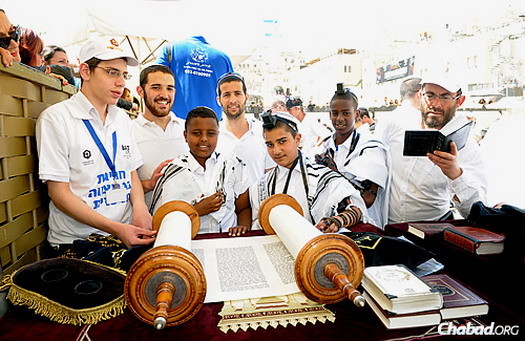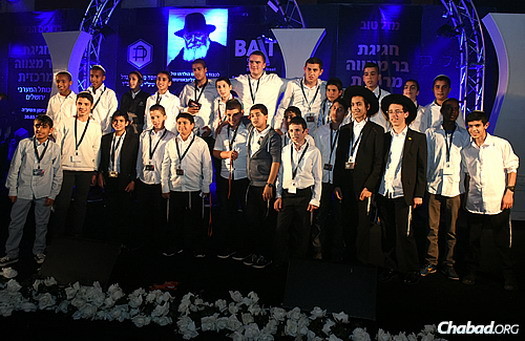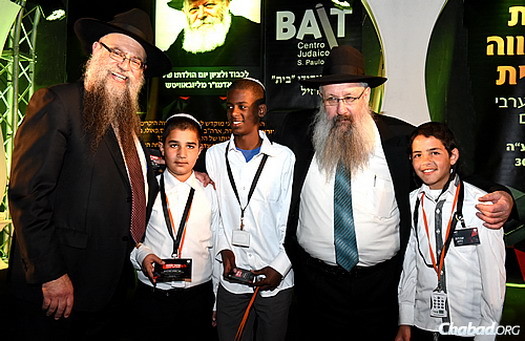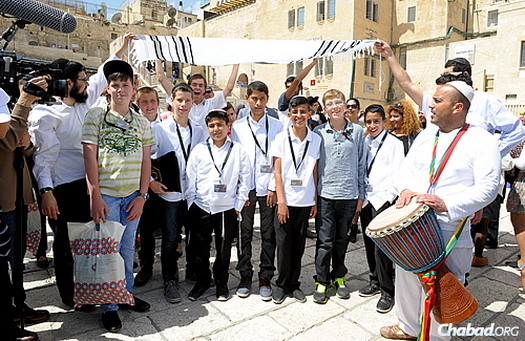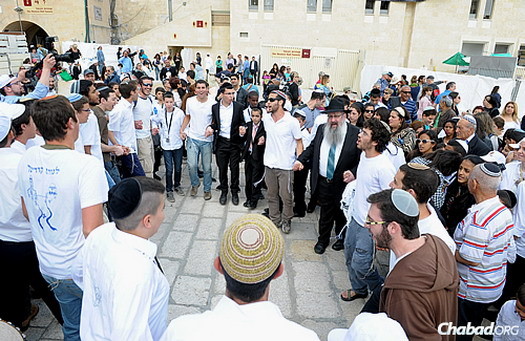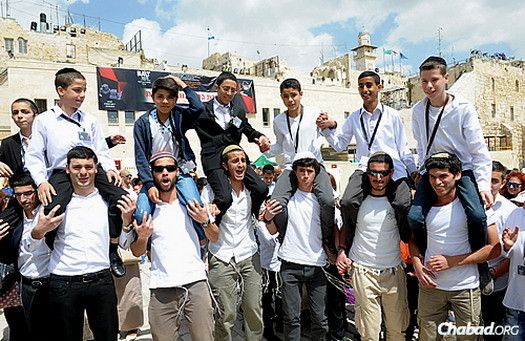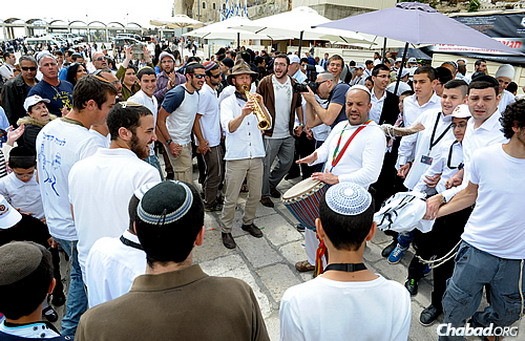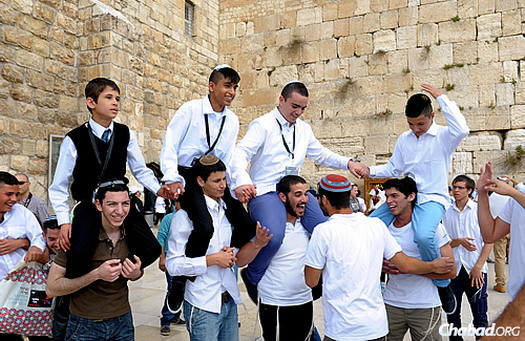
113 Orphans Celebrate Bar Mitzvah with Colel Chabad
When he was 7, Maor S. from the southern Israeli town of Kiryat Malachi lost his mother to cancer. Each year, his grandmother and aunt struggled to find the emotional strength to celebrate his birthday with the happiness the boy deserved, but it was always difficult. They were all the more worried when it came to preparing for Maor’s bar mitzvah at the age of 13, when he would be called to the Torah and in Jewish tradition considered a man.
But then his aunt heard about an initiative sponsored by Colel Chabad, Israel’s longest-running charity. Each year, the organization invites orphaned boys to celebrate their bar mitzvahs alongside others who also lost parents at early ages, with all expenses covered by donors.
The past annual celebrations have always drawn their inspiration from the Rebbe, Rabbi Menachem M. Schneerson, of righteous memory, and in recent years the number of orphans involved corresponds to the number of years since the Rebbe’s birth. This year’s celebration was especially auspicious, coming on the day before 11 Nisan, the anniversary of the Rebbe’s birth, and 100 years since the Rebbe’s own bar mitzvah.
So on Monday, Maor joined another 112 boys at the Western Wall in Jerusalem to mark the milestone. The event was designed to ensure that the boys and their parents would truly be guests, able to enjoy the simcha in every way. Many of the families in attendance came from economically disadvantaged backgrounds, where the prospect of such a complete celebration would never have been possible.
Upon arrival in Jerusalem, each boy was provided with a brand-new tallit and set of tefillin—a purchase that can cost hundreds of dollars. The boys also received a kipah (skullcap), which they wore as they were danced down from the Western Wall plaza to the wall itself—the Kotel—where they made the traditional blessing over the Torah for the first time.
The collection of families at the event was as diverse as Israeli society itself. Boys traveled from as far away as Kiryat Shmona on the northern border to Eilat in the south. Although many of the children came from observant backgrounds, for others, this represented their first exposure to an organized religious service.
The one thing that united them was the loss of at least one parent. Some had lost their mother or father to illness, others to tragic accidents or terror attacks, and in some cases, to suicide.
Every effort was made to focus on the happiness of the day, leaving the child’s pain aside.
Dinner, Gifts and Wise Words
The first such gathering was held in 1992, when Colel Chabad, the longest continuously running charity in Israel, founded in 1788 by the first Chabad Rebbe, Rabbi Shneur Zalman of Liadi, initiated a mass Bar Mitzvah in the merit of the Rebbe. That celebration included nearly 1,000 recent Russian immigrants to Israel.
The idea for the current program, now in its seventh year, was conceived of by Rabbi Yitzchak Michaan, Chabad-Lubavitch emissary in Brazil and director of Mercaz Hayehudit Bait Brazil. A father of 13 who lost his wife to illness, the rabbi came up with the idea at his son’s bar mitzvah to ensure that orphaned children could be surrounded by others in similar situations on days of celebration. What started in 2008 with 10 boys has now grown to 113.
A similar program exists for girls. In February, 36 girls from across Israel came together in Jerusalem for a joint bat mitzvah celebration, complete with a celebratory dinner, speakers, singing and dancing.
“During times of happiness, I know that these families feel that something is missing in their lives. So our goal was to ensure that these children know that they are not alone—that they can be truly happy, and that life will go on despite the obvious pain and loss they are feeling,” said Michaan.
Rabbi Sholom Duchman, international director of Colel Chabad, says the bar mitzvah program is just one facet of a national effort that has reached nearly 1,800 boys and girls who have lost parents. “On days like today, we want these children to feel the joy that any normal child experiences on his bar mitzvah,” he said.
After the ceremony in the Old City, the children and their families were taken by bus to the Binyanei Hauma convention center at the entrance to Jerusalem. A lavishly decorated banquet hall awaited the guests, who were treated to a multi-course gourmet meal and musical entertainment. Also present at the gathering were numerous dignitaries, including close to 30 members of Knesset, among them Knesset Speaker Yuli Edelstein.
Each boy was brought up to the stage and presented with a personalized gift and given a special blessing.
One mother of six, Eliana Zilberman, looked on with tears in her eyes as she spoke about the importance of this day for her son Aviad, whose father Shmulik was killed less than three years earlier in a work accident. She said Aviad was initially nervous to come, but when he saw other boys in a similar situation, he quickly warmed up.
“This event reminded us that people truly care about others. The reality is that for many kids in this situation, true happiness is not something they get to feel very often,” acknowledged the boy’s mother. “But today, they felt it, and we will all remain appreciative for the rest of our lives.”
A delegation of the bar mitzvah boys was also honored to meet with Israeli Prime Minister Benjamin Netanyahu in his office. Congratulating them, the premier shared a message he himself received years earlier from the Rebbe, calling on them to use their experiences to become a flame of light that dispels the darkness around them in the world.

